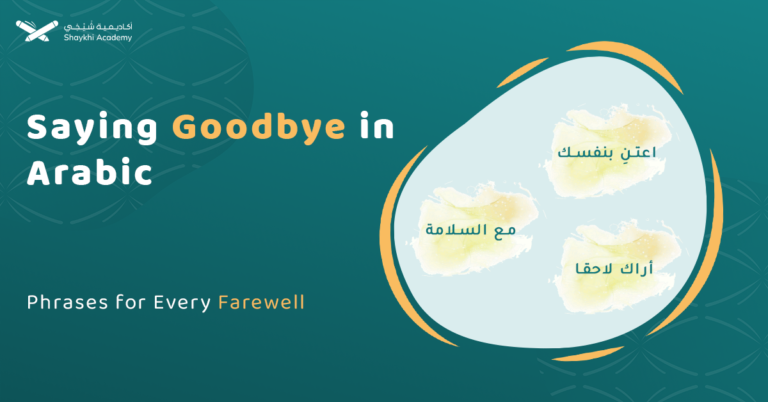Can You Swear During Ramadan? Swearing during Ramadan, as well as getting angry, is discouraged in Islam but does not invalidate the fast. Such behavior contradicts the spiritual objectives of Ramadan, including fostering self-discipline and patience.
While swearing itself does not nullify the fast, it diminishes its reward and goes against the teachings of Prophet Muhammad (peace be upon him) regarding maintaining good character while fasting.
Accidentally swearing is also undesirable but does not carry the same level of accountability as intentional swearing. Muslims should strive to uphold good manners, control their tongues, and seek forgiveness for any unintentional mistakes throughout Ramadan and beyond.
Can You Swear During Ramadan?
In Islam, swearing or engaging in abusive language, whether during Ramadan or at any other time, is discouraged and considered contrary to the teachings of the Prophet Muhammad (peace be upon him). While swearing itself does not invalidate the fast, it diminishes the reward of fasting and contradicts the purpose of Ramadan, which is to cultivate piety and self-restraint.
The Prophet Muhammad (peace be upon him) instructed Muslims to exercise patience and refrain from engaging in any form of dispute or argument while fasting. He said, “If one of you is fasting, then let him avoid obscenities and ignorant behavior. If someone insults him or tries to provoke him, let him simply say, ‘I am fasting.'” (Sahih al-Bukhari and Sahih Muslim)
Therefore, while swearing during Ramadan does not nullify the fast, it is essential for Muslims to maintain good behavior, control their tongues, and avoid disputes or arguments that may detract from the spiritual benefits of fasting. Instead, they should strive to uphold the values of patience, kindness, and forgiveness throughout the holy month and beyond.
Can You Curse On Ramadan?
In Islam, cursing or using foul language is considered inappropriate behavior at any time, including during Ramadan. While cursing itself does not invalidate the fast, it contradicts the spiritual objectives of Ramadan, which include fostering self-discipline, patience, and purification of the soul.
Does Swearing Break Your Fast?
Swearing or using foul language does not invalidate the fast in Islam, but it is considered inappropriate behavior, especially during the sacred month of Ramadan. However, it’s essential to understand the nuances of this issue.
The primary concern during fasting in Islam is to abstain from activities that nullify the fast, such as eating, drinking, sexual activity, and deliberate vomiting. Swearing, while sinful and discouraged, does not fall under these categories.
The Prophet Muhammad (peace be upon him) emphasized the importance of maintaining good character and avoiding disputes or arguments while fasting. He said, “If one of you is fasting, then let him avoid obscenities and ignorant behavior. If someone insults him or tries to provoke him, let him simply say, ‘I am fasting.'” (Sahih al-Bukhari and Sahih Muslim)
Although swearing does not break the fast, it goes against the spirit of Ramadan, which encourages believers to cultivate self-discipline, patience, and spiritual purification. Muslims are encouraged to refrain from all sinful behavior, including swearing, throughout the year, but particularly during Ramadan, when the focus is on spiritual growth and devotion.
In conclusion, while swearing does not invalidate the fast, Muslims should strive to maintain good manners, avoid disputes, and refrain from sinful behavior during Ramadan and throughout their lives, in accordance with the teachings of Islam.
Does Accidentally Swearing Break Your Fast?
Accidentally swearing, like intentionally swearing, is considered inappropriate behavior in Islam, but the severity of the action depends on various factors such as intention, circumstances, and frequency.
Accidentally swearing may occur due to slip of the tongue or unawareness of the meaning of certain words. In such cases, while the action is not deliberate, it is still considered undesirable and should be avoided.
However, accidental swearing does not carry the same level of accountability or sinfulness as intentional swearing. Islam encourages believers to seek forgiveness from Allah for any unintentional mistakes or slips of the tongue.
The Prophet Muhammad (peace be upon him) advised Muslims to be mindful of their speech and to speak words of goodness and kindness. He said, “Whoever believes in Allah and the Last Day, let him speak goodness or remain silent.” (Sahih al-Bukhari and Sahih Muslim)
So, while accidentally swearing is not encouraged in Islam, it is not considered haram (forbidden) in the same sense as intentional swearing. Muslims should strive to be mindful of their speech and seek forgiveness for any unintentional mistakes they may make.
Unlock the Path to Quranic Mastery with Shaykhi Academy!
Are you seeking the finest Quranic education right from the comfort of your home? Look no further! Shaykhi Academy stands out as a premier online Quran learning platform, dedicated to providing exemplary education to both children and adults.
Why Choose Shaykhi Academy?
- Connect with highly qualified native tutors.
- Flexible scheduling to suit your busy lifestyle.
- Affordable classes tailored for all levels.
- Accessible from anywhere around the globe.
Discover Our Range of Courses:
- Arabic Noorani Qaida: Lay a solid foundation for Quranic studies.
- Online Quran Classes for Kids: Engaging lessons for lifelong learning.
- Tajweed Rules for Kids: Learn to recite with confidence.
- Quran Hifz for Kids: Step-by-step guidance to memorize the Quran.
- Quran for Adults: Introduce yourself to Quran reading and Tajweed rules.
- Online Arabic Courses: Master the language of the Quran.
- Islamic Studies: A wide range of topics related to Islam, including theology, law, Quranic studies, Hadith.
Don’t Miss Out on Your Chance to Excel!
Whether you’re a beginner or seeking advanced knowledge, Shaykhi Academy can guide you! Book your free trial now and make Ramadan 2024 your Quranic turning point!

Conclusion:
In conclusion, swearing during Ramadan, as well as getting angry, does not break the fast in Islam. However, such behavior is strongly discouraged as it goes against the spiritual objectives of Ramadan, which include fostering self-discipline, patience, and purification of the soul. While swearing itself does not invalidate the fast, it diminishes its reward and contradicts the teachings of the Prophet Muhammad (peace be upon him) regarding maintaining good character and avoiding disputes while fasting.
Muslims are encouraged to uphold good manners, control their tongues, and refrain from sinful behavior not only during Ramadan but throughout their lives. Accidentally swearing, while undesirable, does not carry the same level of accountability as intentional swearing, but believers should still seek forgiveness for any unintentional mistakes.
Ultimately, Muslims should strive to embody the values of patience, kindness, and spiritual growth during Ramadan and beyond, in accordance with the teachings of Islam.

















































